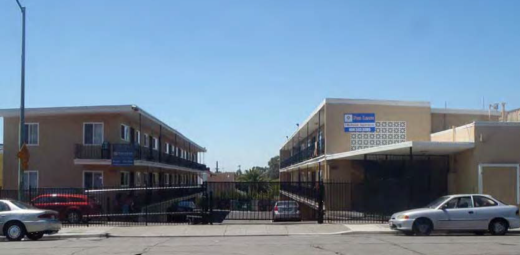
Feb 11Mercy Loan Fund Partners with Community Housing Capital to Bring Affordable Housing to East Bay of San Francisco
FOR IMMEDIATE RELEASE: 2/11/2016
Contact:
Amelia Laing
Content Manager
alaing@mercyhousing.org
303-830-3432
Denver, CO—Mercy Loan Fund (MLF), a leading Community Development Financial Institution (CDFI) based in Denver, Colo., announced that it has partnered with Community Housing Capital (CHC) to provide affordable housing to people with low incomes in the East Bay of San Francisco, specifically in the Contra Costa and Alameda counties.
Along with the National Housing Trust and the Northern California Community Loan Fund, MLF and CHC will provide a $10 million line of credit to the East Bay Asian Local Development Corporation (EBALDC). MLF will provide $1.33 million of the total line.
The line of credit will help EBALDC take advantage of purchase opportunities faster, compete with for-profit organizations and cash buyers, and purchase an estimated $17 million Class B and C multifamily properties in Alameda and Contra Costa counties. These properties are already affordable housing properties and have no current subsidies.

Ultimately, the line of credit will help preserve and acquire affordable housing in the East Bay area. One such project in their pipeline, McArthur Apartments, is a 53-unit multifamily property in East Oakland serving people making 40 to 80 percent of the area median income (AMI).
“As the East Bay region of California begins another economic boom, the area is experiencing some of the highest increases in housing costs in the country,” said Jack Gilbert, President and CEO of Community Housing Capital. “As affordable as Oakland and the East Bay are in comparison with the San Francisco Bay area, it is still a high-cost housing market, especially for immigrants, refugees, people with disabilities, seniors, people on fixed incomes, and others with low or extremely low incomes. At particular risk of displacement are moderate-income service workers who make up the core of East Bay communities, such as teachers, firefighters, and police officers. By partnering with Mercy Loan Fund, the National Housing Trust, and the Northern California Community Loan Fund, we hope to help EBALDC fulfill its mission.”
“Partnerships such as ours with Community Housing Capital benefit communities that are struggling to find safe, affordable housing in such a tight housing market,” said Jason Battista, President of Mercy Loan Fund. “We’re excited to be part of such an ambitious community-building endeavor.”
A recent report released by the California Housing Partnership Corporation (CHPC) supports Gilbert and Battista’s comments. The report found renters living in Contra Costa county need to earn 3.5 times the local minimum wage in order to afford average asking rents, and that overcrowding for low-income renters there is 43 percent above the national average, “contributing significantly to poor health and academic achievement among low-income children.” Another report by the CHPC notes, “There is a shortfall of 58,680 homes affordable to Alameda County’s very low-income (VLI) and extremely low-income (ELI) households” and that “84 percent of all very-low income households in Alameda County do not have access to an affordable home.”
About Mercy Loan Fund
For three decades, Mercy Loan Fund has focused exclusively on funding affordable housing and essential community infrastructure projects that support affordable housing. By collaborating with socially-responsible developers, Mercy Loan Fund has helped finance the development of single and multifamily homes for rental and homeownership. These developments help a variety of people including low-income families, the working poor, seniors, farm works, people who have experienced homelessness, and people with special needs. Mercy Loan Fund is a subsidiary of the affordable housing nonprofit, Mercy Housing. For more information, please visit www.mercyloanfund.org.
About Community Housing Capital
Community Housing Capital, a national Community Development Financial Institution intermediary, serves exclusively as a direct lender to the NeighborWorks® network. Incorporated in 2000, Community Housing Capital is certified as a community development financial institution and a community development entity by the U.S. Treasury’s CDFI Fund. Lending to members of the NeighborWorks network, Community Housing Capital provides both interim real estate development loans and permanent multifamily loans with favorable rates and terms. Loans are underwritten with the flexibility required to finance complex transactions with multiple layers of subsidies. To implement its loan programs, Community Housing Capital uses grant funds provided by NeighborWorks America and the CDFI Fund to significantly leverage private-sector debt capital from socially responsible investors. Community Housing Capital is headquartered in Decatur, Georgia. For more information, visit www.communityhousingcapital.org.
No related posts.
Stay Up To Date
Get news on Mercy Housing and inspiring stories of change delivered to your inbox.


